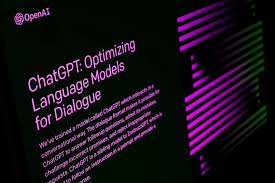
You’ve seen the headlines: college students are outsourcing their education to AI tools.
The early anecdotes, research and surveys raise valid concerns, but this narrative is too quick to paint a picture of a technology undermining academic integrity, eroding critical thinking or even replacing the role of educators or universities altogether.
I lead the University of Nebraska at Omaha as its chancellor, and I see a different story. It wasn’t long ago that calculators raised questions about academic rigor in math classrooms. Some of us are old enough to remember how “CliffsNotes” was a dirty word in writing courses.
The emergence of the internet and Wikipedia once stirred fears about plagiarism. If you go far back enough, even Socrates had his concerns about the written word, saying “This invention will produce forgetfulness in the minds of those who learn to use it, because they will not practice their memory.” Sound familiar?
History shows us the only constant in education is new technology will emerge that forces us to confront how we teach, work and learn. History also shows us that every disruptive technology provides an opportunity to evolve education and improve lives.
Our challenge and our responsibility is to guide students to use these technologies responsibly, ethically and productively while positioning them to navigate technological revolutions successfully.
It’s why UNO in the last year alone has launched an AI Learning Lab, partnered with Open AI on a ChatGPT enterprise solution for our campus and established one of the nation’s first undergraduate degrees in artificial intelligence.
It’s also why we are inviting the community to learn about the practical ways they can use generative AI at our OMA x AI event in October. It shouldn’t come as a surprise that as an institution, we don’t view AI as a threat, but as a tool that can deepen learning, expand opportunity and strengthen workforce readiness.
